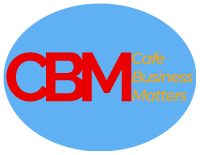Before we get into systems that can benefit you in your supply chain, we need to first select who is our ideal supplier that is competent and efficient to your requirements.
On what basis do we assess and determine the eligibility of our potential suppliers. This is a very important part of your business and should not be handled lightly.
Your relationship with your suppliers is just as important as your relationship with your staff. In some instances, you will be dealing with your suppliers on a daily or weekly basis. I used to view my supplier’s representatives as an integral part of my business. They were like an employee in some occasions.
This applies to which Suppliers
There is a range of suppliers that can be categorized within the hospitality industry. Some as I mentioned will be utilized on a daily, some weekly, others annually or just a one-off use.
As a buyer, or in your supplier’s context, their customer, you need to be clear and concise in your requirements. If you are not sure of what it is you are seeking from your supplier, you are only making their job a lot harder.
Let us list some categories of suppliers for clarification;
Your Daily or Weekly Direct Suppliers
Food Growers Farmers,
Food Manufacturers Bakeries, Cake Shops
Beverage Manufacturers Coffee Roasters, Soft Drinks
Your Daily or Weekly Intermediary Suppliers
Wholesalers Food
Distributors
Reresentatives
Your As Required Intermediary Suppliers
Equipment Suppliers Furniture, Crockery, Utensils
Maintenance Contractors Electrician, Refrigeration, Gas
Employment Agencies Employment
Local Council Trade Waste, Food Licences
Government Agencies Work Health Safety, Taxation
Professional Associations Accounting, Legal
Training Associations Labour, Skilling
What to look for in a Supplier
Selecting the right supplier is important. You need to assess if they are capable of supplying your requirements for products and services.
Larger supplier operations obviously have more leverage because of their purchasing power. Smaller suppliers have the benefit of being more flexible and adaptable. Either way both should be accommodating to your needs.
When a supplier is selected it is your job to work with them and to monitor their performance. When selected you should work out your fundamentals with the supplier, like order time, acceptable delivery times, and the handling of rejected products, and follow up. Communication is key here with your supplier.
Pricing of items purchased need to be fair and stable. Consistency in quality and reliability of supply are paramount for your operation. Your supplier and representative needs to understand your business and its goals. This can all be achieved through product specifications, which I will cover in another post.
Aren’t all Suppliers the same?
The negative impact of selecting who is not an extension of your business could be critical. If they provide poor service or the goods and services are substandard, this could be perilous for your business.
Imagine if you chose a Fruit and Vege supplier based on pricing alone. As a result, the lower prices you soon discover they have a higher-than-normal rate of out-of-stocks, produce is over or under ripe when delivered. Substitute products provided are inadequate or not too specification for its intended use.
The ramifications of the above would result in the following areas, staff morale problems, customer complaints, wastage, and loss of sales. Next thing you know you have a poor image within the food service industry and experience reducing goodwill.
So now you are struggling to pay the bills, so suppliers may be reluctant to deal with you or let alone offer extended credit. In fact, you have learnt they have reclassified your account to cash on delivery only. This may sound extreme but over time this scenario is not far from what can happen.
Educating your Suppliers
With all the above in mind, you should understand that the supplier with the lowest price is not necessarily the best fit. The right supplier for your business should be consistent in quality, delivery schedules, have a fair price for goods, and favorable credit terms.
You need to view your suppliers as a subsidiary of your business. They need to know your business and your market or niche in which you operate, in order to assist you. If they have a representative that calls on you, treat them as a friend. Share your aspirations for your business and they will help you.
Representatives are an employee. If you have a rep who calls on you monthly and just drops off the monthly specials then ask for another rep. These people are brochure droppers and offer very little value to your business, in fact they have a job that requires x number of calls per day so the supplier they work for has little interest in your business as well.
Ongoing relationships with Suppliers
The relationship with your supplier should be one of understanding and knowing each other’s expectations with orders and deliveries. Respectful with honesty and integrity. After all I am sure that is what you offer and expect from your customers.
Your supplier is part of your team and you both have beneficial and mutual goals, Therefore it is best to work together and help each other. This is the best recipe for nurturing a great business relationship.
What if your supplier experience was bad
If by chance you did experience bad service or product supply from a supplier, never write them off forever. Over time may learn and improve on their inadequacies, and/or obtain distribution rights for a product or service you require in the future. So you may want to deal with them again. Keep your options open.
Just let them know that currently they are not a good fit for your business goals, Keep a good relationship, and let them know you still want to keep in touch. Never leave on a bad note as you do not want any negative gossip within the market place.
Summary
Suppliers are an integral part of your business. Therefore, suppliers need to be selected and managed in a way, that benefits your operations, your products, and your business goals. When and how you choose suppliers for your business, remember there are three main components to consider;
- Price – Reasonable and Competitive
- Delivery – Convenient and Dependable
- Quality – Consistent and High Quality
The bonus to all the above is to have a supplier representative that wants to work with you to make your business a success. If they help your business to grow, then in return you are making their business grow.

